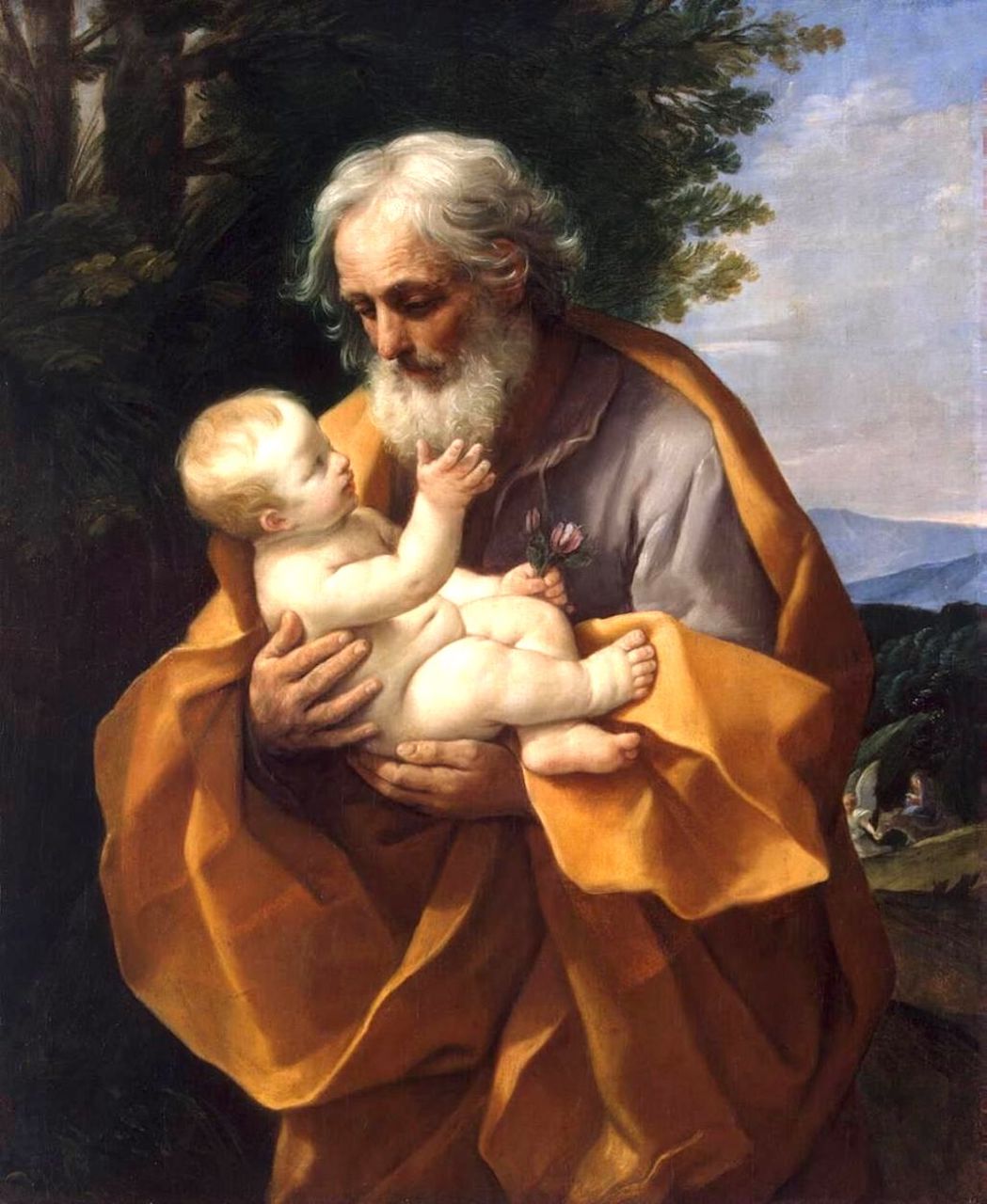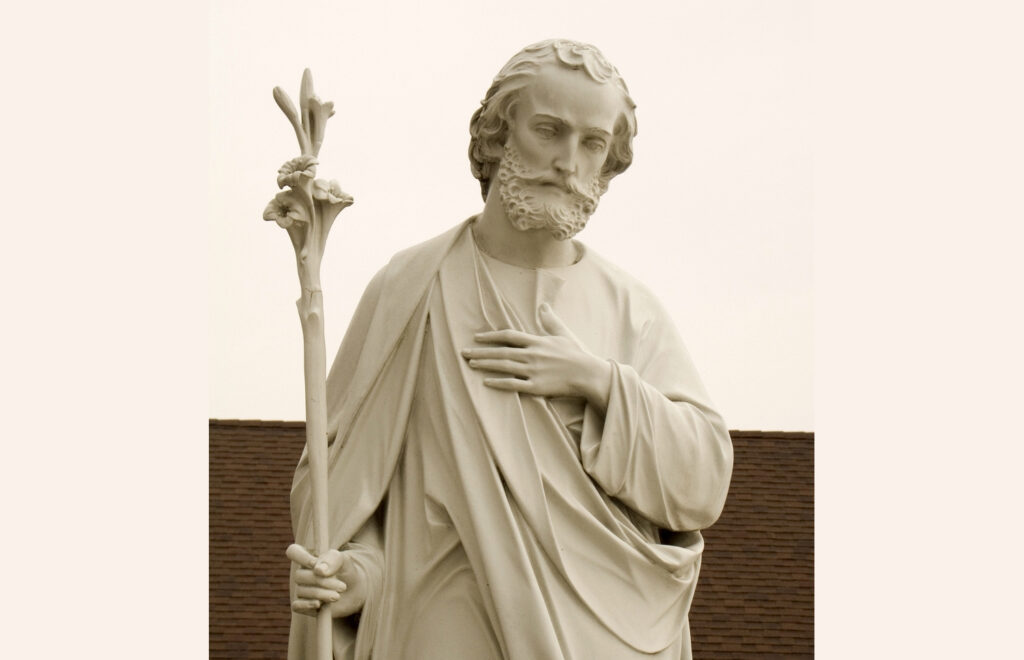The Solemnity of Saint Joseph is observed on March 20 this year because his feast day, March 19, falls on a Lenten Sunday.
Saint Joseph does not utter a single word throughout the four Gospels, but it is his actions that speak volumes to show he is the model of a strong man, husband and father – a Catholic gentleman. God would not have chosen an unworthy man to be the husband of Mary, who is the epitome of being a lady.
Saint Joseph was the husband of the Blessed Virgin Mary and the foster father of Jesus, meaning he had a great responsibility to protect his wife and son. He was always devoted to them, despite the difficulties they faced as the Holy Family. Joseph was Mary’s protector from the moment they were betrothed; he was protecting her from being stoned to death when he considered quietly divorcing her after she became pregnant. After an angel appeared to him, however, he dedicated the rest of his life to being the head of the Holy Family.
Saint Joseph was a man of action; as Saint Matthew writes the story of Jesus’ birth, he recounts four dreams. In each dream, an angel instructs Saint Joseph to do something, or take his family somewhere to safety. Saint Joseph doesn’t hesitate; he gets up, even in the middle of the night, and leaves with Mary and baby Jesus. Travel was difficult and dangerous at that time, but Joseph shows he is brave, strong and faithful.

There is no official Church teaching on Saint Joseph’s age, though he is often depicted in artwork as a docile, weak, old man – even sleeping. However, Venerable Archbishop Fulton Sheen writes “Joseph was probably a young man, strong, virile, athletic, handsome, chaste and disciplined. Instead of being a man incapable of loving, he must have been on fire with love” (“The World’s First Love: Mary, Mother of God” 1996).
Saint Joseph’s purity would not have been as great a gift to the Blessed Virgin Mary if he had been an old man. He would not have had the energy to protect his family and walk to Egypt if he had been an elderly man. He would not be called the Terror of Demons if he were a weak, old man.
Saint Francis de Sales also writes “think you that the Eternal God would not, in his almighty power and wisdom, choose from out of his creation the most perfect man living [Saint Joseph] to be the guardian of his divine and most glorious Son?” (“Joseph the Just Man,” Rosalie Marie Levy). Being a guardian requires a person to be strong and fearless.
Saint Joseph balances those strong characteristics by being a model of humility and obedience to God’s will. He followed God’s instructions which were delivered to him by angels, taking Mary into his home as his wife when she was pregnant. He took his wife and son to safety in Egypt and provided for them as a carpenter in Nazareth.
Raising the king of kings was not like raising royalty – Saint Joseph lived a humble life and he was a working man. The Holy Family was likely not poor, since Saint Joseph was a tradesman; they were also likely not part of the upper class. During the Presentation of Jesus in the Temple, Saint Luke writes that Joseph and Mary did not offer a lamb in sacrifice, but instead chose the option for those with lesser means: two turtledoves or pigeons.
Since Saint Joseph was a working man, he has a second feast day in May, Saint Joseph the Worker. This feast in March, however, emphasizes that he is the husband of Mary. Blessed William Joseph Chaminade writes that God would only pick the worthiest of men to be the spouse of the Blessed Virgin Mary:
“If God had charged you with the honorable task of choosing from among the kings a husband for the Blessed Virgin, would you not have given her the greatest mind in the world? … Do you think that the Holy Spirit, who is the author of this divine marriage, is less concerned than you are to provide her with a husband suited to her merits?” (“Marian Writings”, Vol. 1, 1980)
Saint Joseph’s feast, which was celebrated locally as early as the ninth century, became a universal feast in the 16th century. Pope Pius IX named Joseph patron of the universal Church in 1870; he is also the patron saint of carpenters, the dying and workers.

